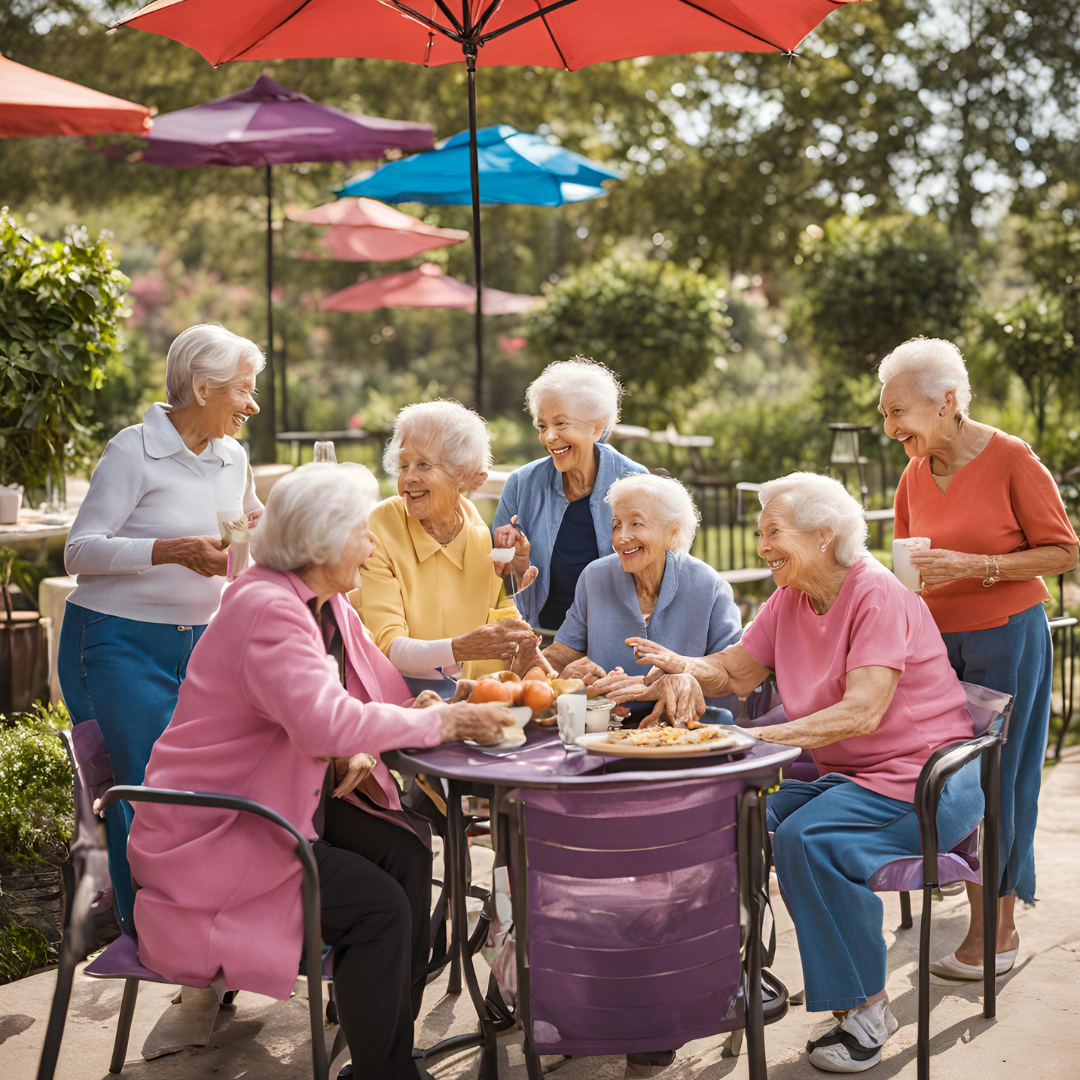As people age, maintaining meaningful friendships becomes increasingly important for emotional well-being, mental health, and overall quality of life. However, factors like retirement, limited mobility, or the loss of close peers can make it challenging for seniors to nurture and sustain social connections. Community outings provide a vital solution, offering opportunities for seniors to bond, form new friendships, and strengthen existing relationships.
In this article, we’ll explore how community outings help seniors build deeper social connections, the benefits of these friendships, and tips for organizing outings that foster a sense of belonging.
Why Friendships Matter in Senior Years
Friendships are essential for all ages, but for seniors, they play an especially critical role in combating isolation and loneliness. According to research, strong social networks:
- Reduce the risk of depression: Regular interaction with friends can lift spirits and provide emotional support.
- Enhance physical health: Socially engaged seniors tend to have lower blood pressure and better immune function.
- Improve cognitive health: Social stimulation helps keep the mind sharp and may reduce the risk of cognitive decline.
Community outings offer a structured way for seniors to meet others, share experiences, and foster meaningful connections.
How Community Outings Strengthen Friendships
1. Creating Shared Experiences
Community outings bring seniors together for activities that create lasting memories. Whether it’s a group picnic, a museum visit, or a nature walk, shared experiences build a sense of camaraderie and foster deeper bonds.
2. Encouraging Teamwork and Collaboration
Activities like group games, workshops, or volunteer projects encourage teamwork and cooperation. Seniors learn to rely on one another, strengthening trust and mutual respect.
3. Breaking Down Barriers
Outings provide a relaxed environment where seniors can let their guard down. Conversations flow more naturally during shared activities, making it easier to form genuine connections.
4. Introducing New People
For seniors who may have lost touch with old friends, outings are a great way to meet new people with similar interests. Over time, these casual acquaintances can develop into meaningful friendships.
5. Building Routine and Stability
Regular outings establish a sense of routine and stability in seniors’ social lives. Knowing they’ll see familiar faces on specific days fosters anticipation and strengthens relationships.
The Emotional Benefits of Senior Friendships
The friendships formed and nurtured through community outings contribute to seniors’ emotional well-being in profound ways:
- Increased Joy: Laughter and lighthearted moments with friends bring immense happiness.
- Stress Relief: Having a trusted group to talk to helps reduce anxiety and stress.
- Sense of Belonging: Friendships combat feelings of isolation, reminding seniors they are valued and connected.
Types of Community Outings That Strengthen Friendships
1. Recreational Outings
Fun activities like bowling, mini-golf, or movie nights offer opportunities for lighthearted interaction. These casual settings are perfect for bonding.
2. Cultural and Educational Trips
Visits to museums, art galleries, or historical landmarks provide stimulating environments where seniors can share insights and learn together.
3. Wellness Activities
Group yoga sessions, tai chi in the park, or spa days encourage relaxation while creating space for meaningful conversations.
4. Volunteer Opportunities
Working together on community service projects, such as preparing meals for the homeless or participating in a charity event, fosters teamwork and shared purpose.
5. Nature Excursions
Hiking trails, picnics by the lake, or garden tours allow seniors to enjoy fresh air and bond over a love of nature.
Real-Life Examples of Strengthened Friendships
Case Study 1: Betty and Margaret’s Weekly Coffee Date
Betty and Margaret met during a community-organized trip to a local botanical garden. They bonded over their shared love of flowers and began meeting weekly for coffee. What started as a chance encounter turned into a cherished friendship.
Case Study 2: The Walking Club
A group of seniors started meeting for weekly walks in the park, organized by their senior center. Over time, these walks became more than just exercise—they turned into an opportunity to celebrate birthdays, share life stories, and support one another through challenges.
Tips for Organizing Community Outings
To ensure outings foster meaningful connections, thoughtful planning is key. Here are some tips:
- Focus on Accessibility
Choose locations that are easy to navigate and cater to various mobility needs. - Plan Group Activities
Incorporate interactive elements like games or guided tours to encourage participation and conversation. - Promote Inclusivity
Ensure activities appeal to diverse interests so everyone feels welcome. - Provide Transportation
Arrange for group transportation to make it easy for all seniors to attend. - Encourage Participation
Promote outings in advance and provide incentives like refreshments or small keepsakes. - Document the Day
Take photos and share them with participants as a way to relive happy memories.
The Lasting Impact of Friendships
The friendships cultivated during community outings don’t just brighten the day—they have lasting benefits. These connections provide emotional support during life’s ups and downs, inspire seniors to remain active and engaged, and create a sense of belonging that enhances their overall quality of life.
By prioritizing outings that bring seniors together, we can help them forge bonds that will enrich their golden years. Whether it’s a simple coffee shop visit or a grand adventure, every outing has the potential to spark meaningful friendships that make life brighter.
Let’s continue to organize and encourage these experiences, creating a community where seniors can thrive together.




